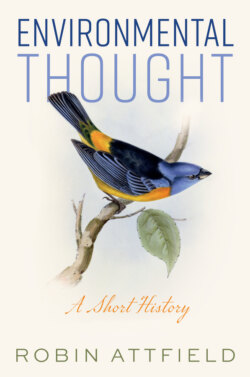Читать книгу Environmental Thought - Robin Attfield - Страница 11
Greek medicine: Hippocrates and ‘Airs, Waters, Places’
ОглавлениеHippocrates of Cos (c. 460–c. 375 BCE) was one of the founders of ancient medicine, and travelled around the islands of the Aegean sea, teaching medical students. For present purposes, his most relevant tract was ‘Airs, Waters, Places’, which seeks to trace the influence of seasons, winds, waters and climates on both human health and human temperaments and cultures. This tract can be seen as prefiguring the late twentieth-century subject of bio-climatology, and has recently been hailed by Anthony Capon (in an address at Cardiff University) as an ancient anticipation of modern ecological studies.
I am not suggesting that ‘Airs, Waters, Places’ exercised any direct influence on modern bio-climatology. Yet many classically educated writers, such as Alexander von Humboldt (1767–1859), took up the theme of the influence of climate on culture, and could well have derived inspiration from the would-be empirical approach of this tract, while newly introducing data from his own study of the new world; and von Humboldt has almost certainly influenced the development of modern climate science (Rajan 2017: 21–50). Hippocrates’ detailed claims are often less than impressive, such as his assertion that cities exposed to hot winds and with plentiful waters have inhabitants with excessive phlegm, leading to dysentery, fevers, eczema and haemorrhoids (‘Airs, Waters, Places’, III). But his approach was later to open up valuable realms of investigation, such as the study of occupational health, and also that of tropical medicine. And that makes it worth a mention here.
